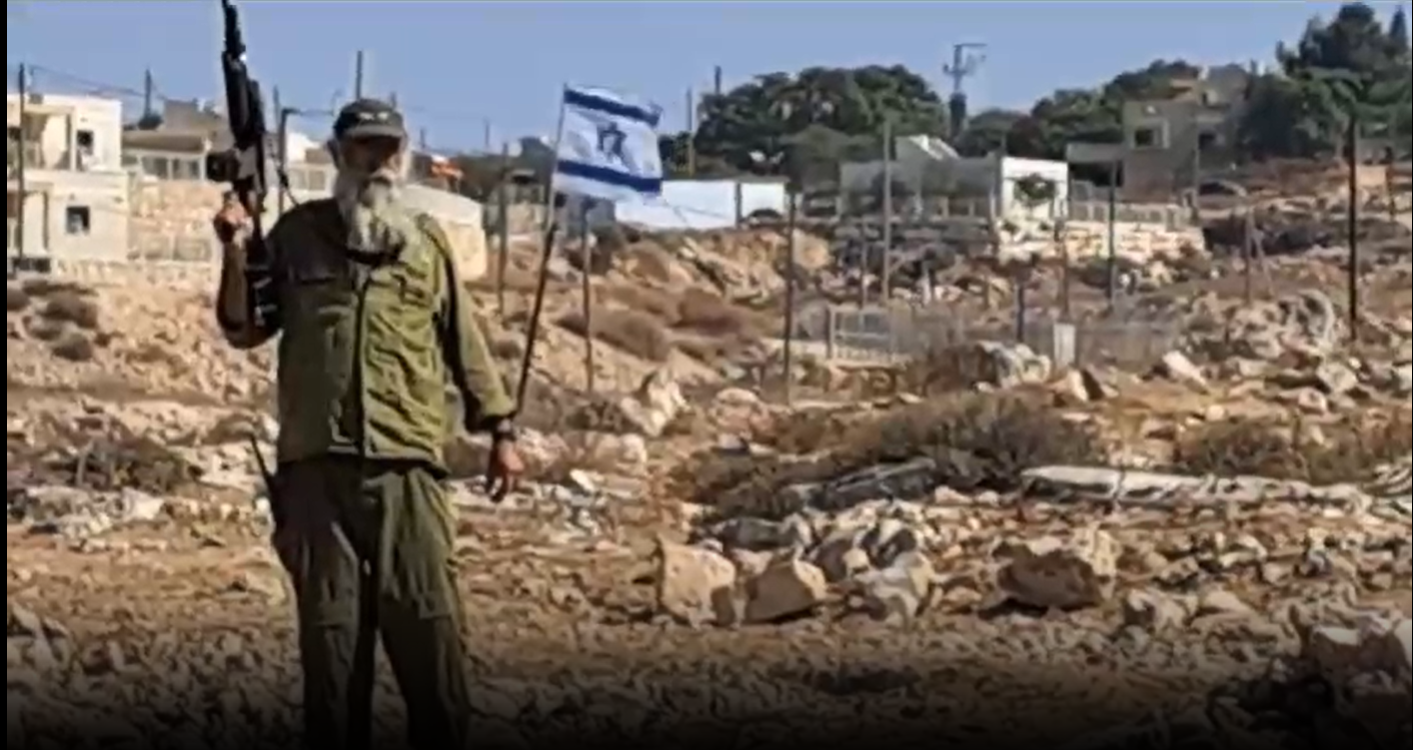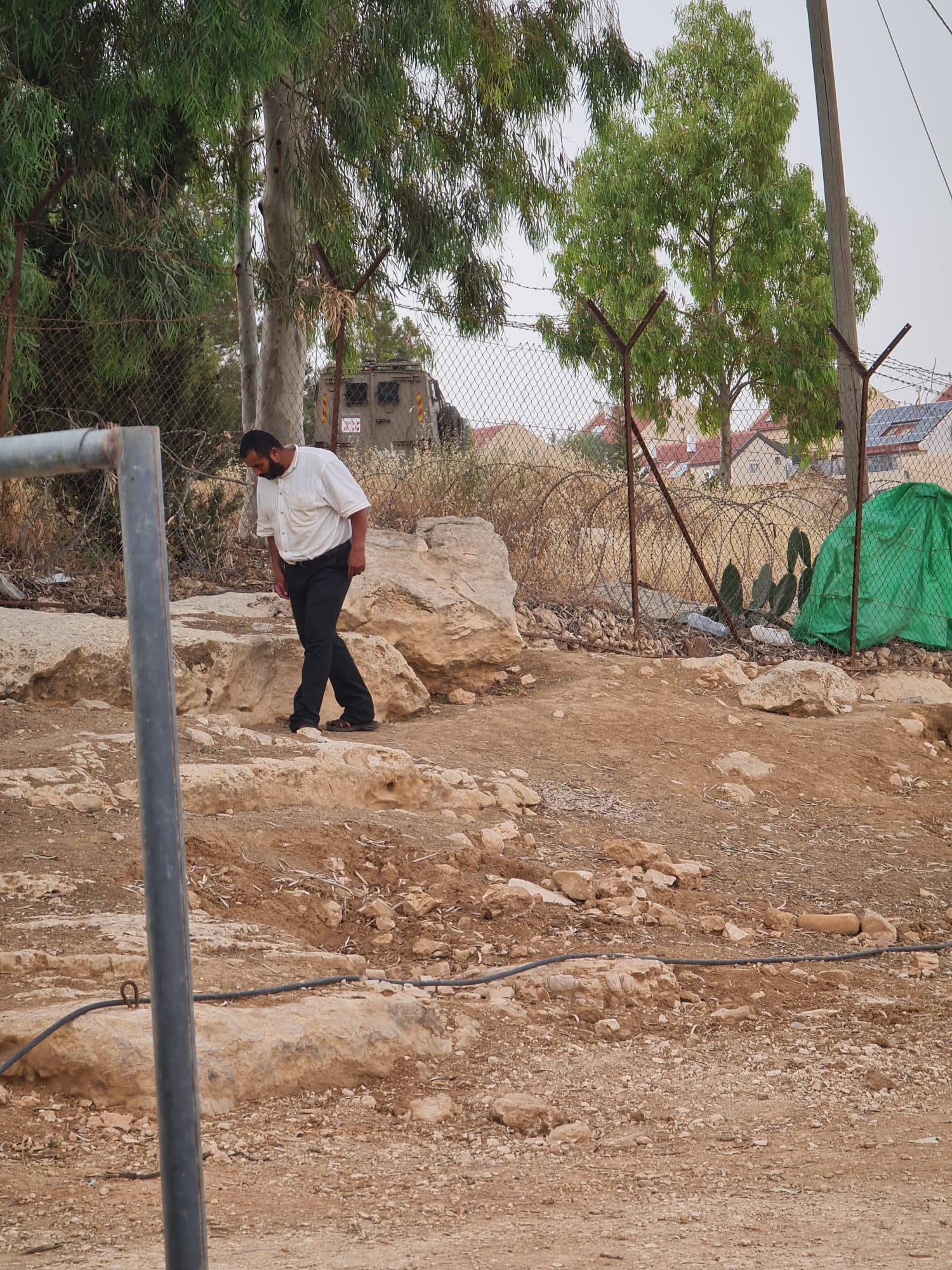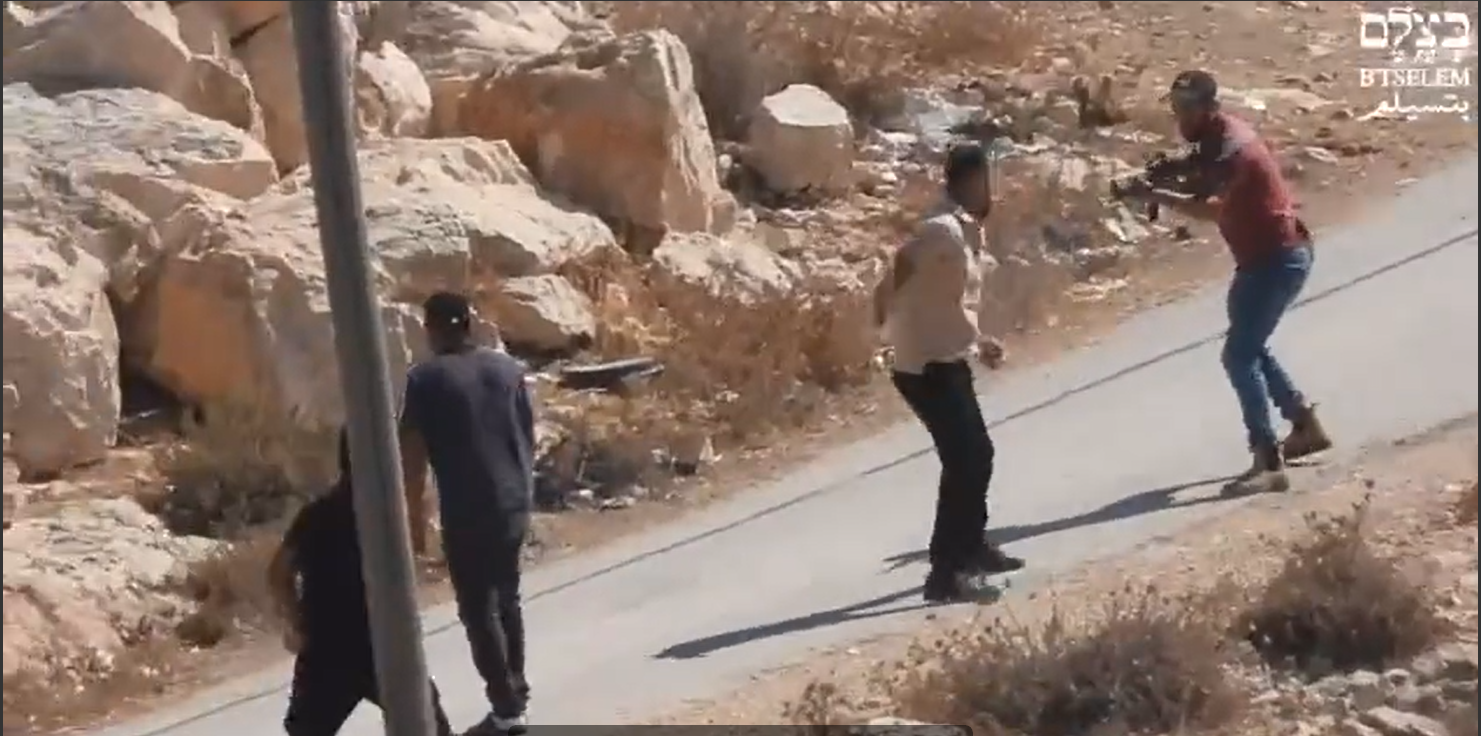Tag: At-Tuwani
-
Watch: Israeli settlers and soldiers destroy Palestinian property, shoot live ammunition in Masafer Yatta
Masafer Yatta | International Solidarity Movement On October 25th, 2023, Israeli settlers and soldiers invaded the land belonging to a Palestinian family in Masafer Yatta, south of Hebron, and used a bulldozer to uproot trees and destroy the family’s garden. The colonial attack occured in the Palestinian village of Tuwani and targeted the…
-
Revenge attacks in Masafer Yatta
16 October, 2023 | International Solidarity Movement | Masafer Yatta In the week since Israel began its onslaught on Gaza, soldiers and settlers have bulldozed homes, carried out night raids and attacked Palestinians across the Masafer Yatta region. Occupation forces have taken advantage of the state of emergency to escalate their violence and displacement…
-
Watch: Israeli settler shoots Palestinian at point blank range in village of At-Tuwani
TRIGGER WARNING: Blood On Friday, October 13th 2023, a settler from the illegal Israeli outpost of Havat Ma’on entered the Palestinian village of At-Tuwani, in the region of Masafer Yatta, armed with an assault rifle and shot a Palestinian man in the stomach at point blank range. The video, which was made public by…



